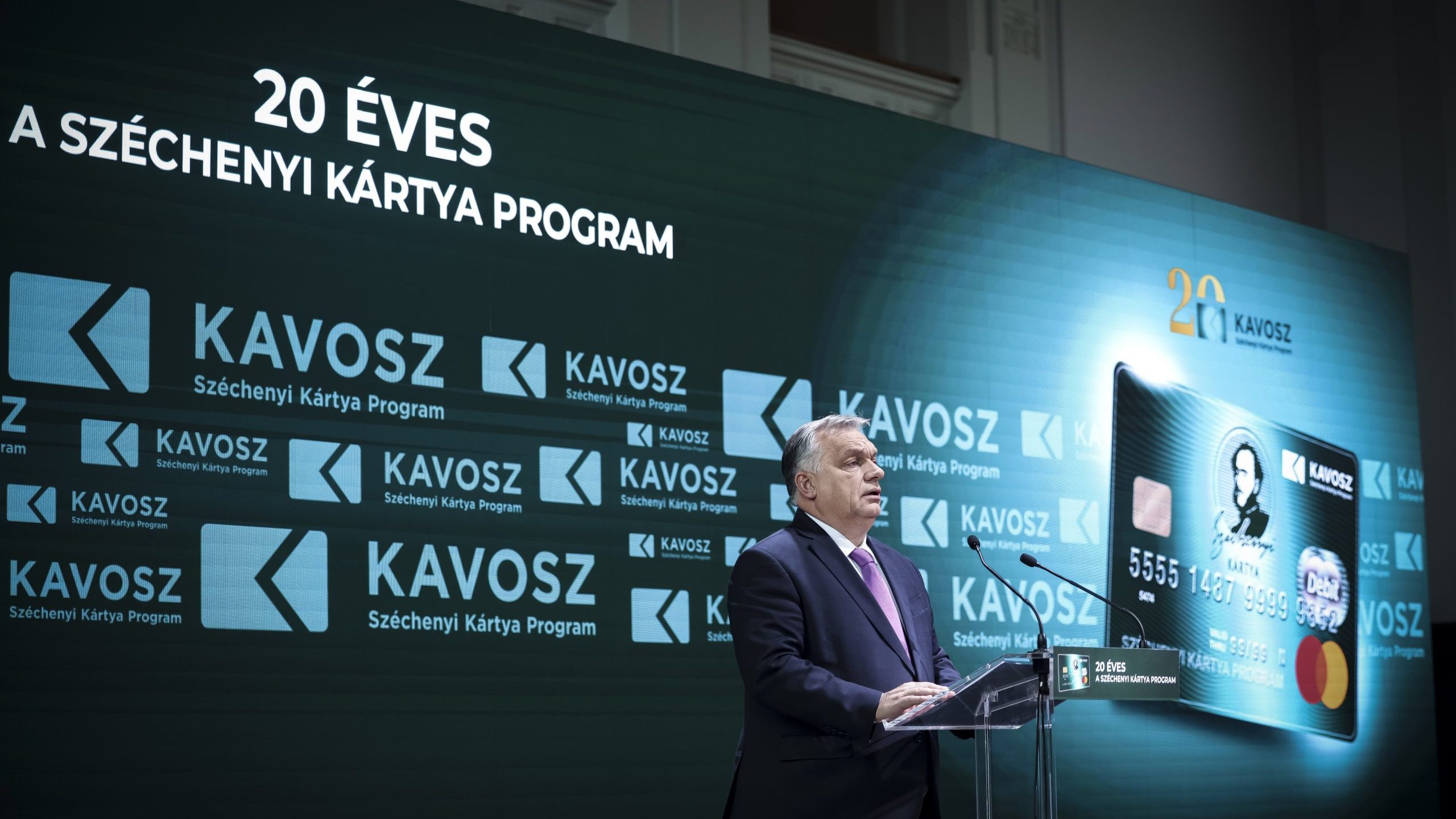
At the ceremony held on the occasion of the 20th anniversary of the introduction of the Széchenyi Card Programme, he highlighted that they had decided to more than double the amount of these grants.
He added: he could say “we’re not doing this not out of charity as interest rates have risen,” and so have interest subsidies, but everybody knows that “we have difficult years ahead,” and so they could have decided not to invest such a large sum of money in grants.
He said an additional HUF 220 billion would be allocated to small and medium-sized businesses falling into the energy-intensive category and a factory rescue programme would also be launched.
The Prime Minister said this anniversary would not have come about without Sándor Demján. They learnt from the founder that aiming for the impossible was the best investment, he himself only ever aimed for the impossible, and sought partners in this enterprise, “this is how he trapped me into the establishment of this card programme,” he said.
He pointed out that large foreign investments mostly target big cities and without large foreign investments Hungary cannot be successful. However, we also need successful Hungarian businesses because that is when Hungary can be a Hungarian country, he stated, adding that in addition to large foreign companies, there must always be a stratum of Hungarian businesses standing on wide, robust and stable foundations.

Mr Orbán said “we were right” that the war should never have started, that those who supply weapons are being dragged ever closer into the war, that the sanctions will shake the core of the European economy and that the energy sanctions will bring about inflation.
At the same time, it may be welcome news that it is possible to stay out of recession and it is possible to stay out of the war, he said, adding that “it is also welcome news” that it is possible to set a target of single-digit inflation for the end of 2023.
He observed that it was likewise welcome news that also in such a situation it was possible to protect families from enormous energy bills.
The Prime Minister further highlighted: he does not believe that the market is sacrosanct, it has its laws, but it is not untouchable and there may well be a need for state intervention. We have such a year ahead, when without a state taking timely and correct action the Hungarian economy will not be successful, he pointed out.
He took the view that we had found ourselves in an energy crisis which conveyed the threat of the drastic decline of the entire European industry. At this time, Europe must make plans for devising a new system with which to replace the European economic structure that has been eliminated this year, he said.
The Prime Minister highlighted that while the 2023 budget had already been adopted, since then various developments had emerged, and so the budget had to be adjusted to the present situation. We cannot rely on anyone else, we must find our own rescue boat, a rescue boat which is able to protect members of the public and to maintain the viable operations of Hungarian businesses all at once, he explained.
He said between 2015 and 2021 we had regularly exceeded the growth of the EU, meaning that there was a dynamic potential in the Hungarian economy. However, energy prices, inflation and high interest rates are negatively affecting Hungary as well.
He believes that energy is the single most difficult challenge because in the present changed household energy subsidisation system, every month the budget provides HUF 180,000 for every Hungarian household because if it failed to do so, the energy bills of every Hungarian family would be higher by this amount. It is important to preserve this subsidy, he stated.
Mr Orbán stressed that 2023 would be a period that would demand a major effort from everyone. The character of the Hungarian people is such that when things go well, they scatter, but when in trouble, they realise that they can only survive with disciplined cooperation, he laid down, adding that this is what we can rely on in 2023 as well.


